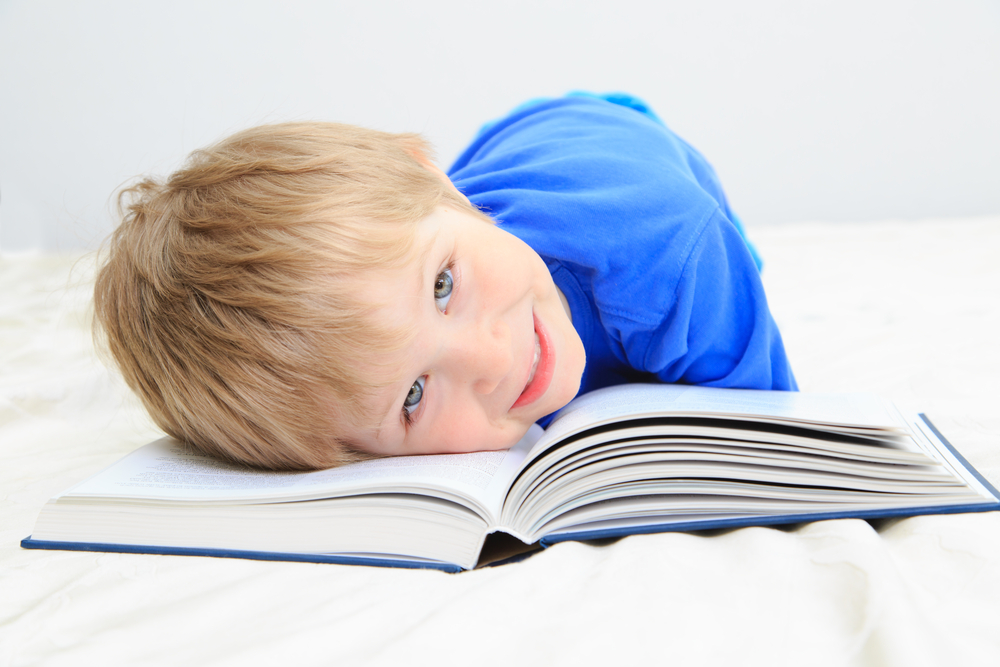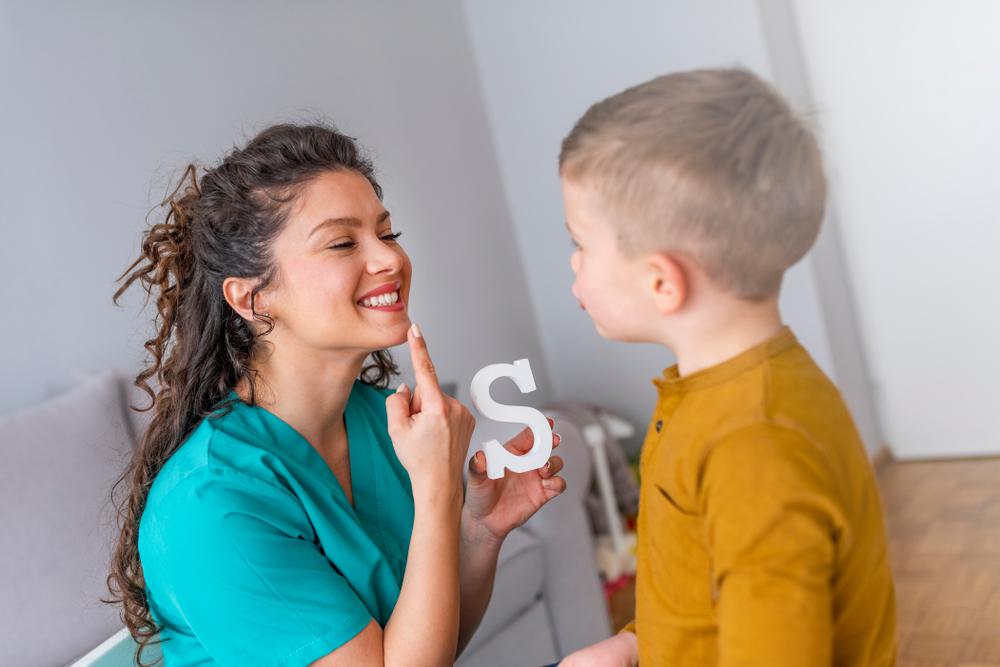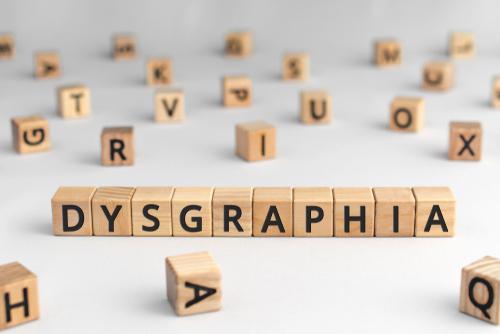Vocabulary Building Normal Reading Worksheets for Ages 5-6
9 filtered results
-
From - To
Our "Vocabulary Building Normal Reading Worksheets for Ages 5-6" offer engaging, age-appropriate exercises that make learning new words fun. Specially designed for early readers, these worksheets help build essential vocabulary through a variety of interactive activities like matching games, fill-in-the-blanks, and picture associations. Boost your child's reading confidence and comprehension skills with captivating content that holds their interest. Perfect for both classroom use and at-home practice, our worksheets provide a strong foundation for lifelong reading success. Visit to explore our extensive range and give your child the tools they need to expand their vocabulary today!
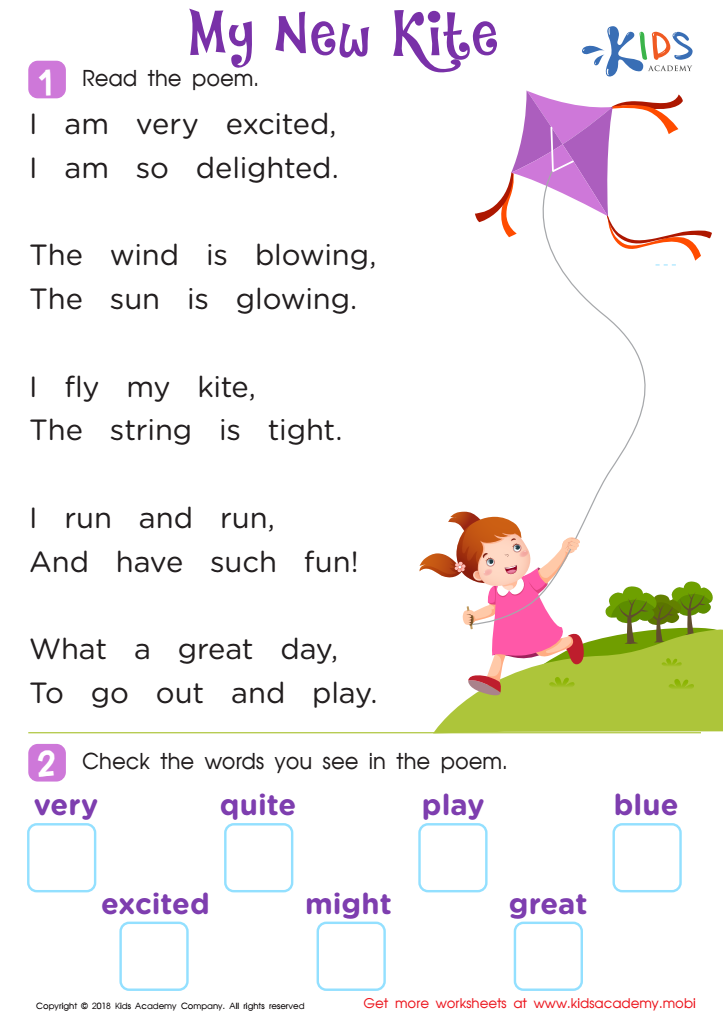

Poem: My New Kite Worksheet
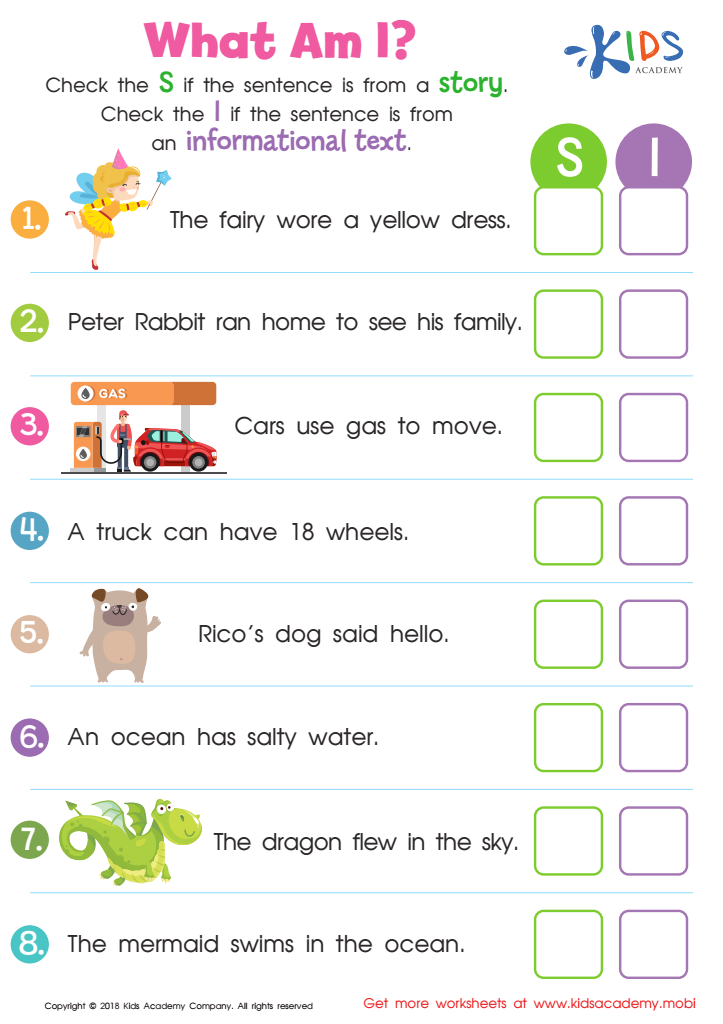

What Am I? Worksheet
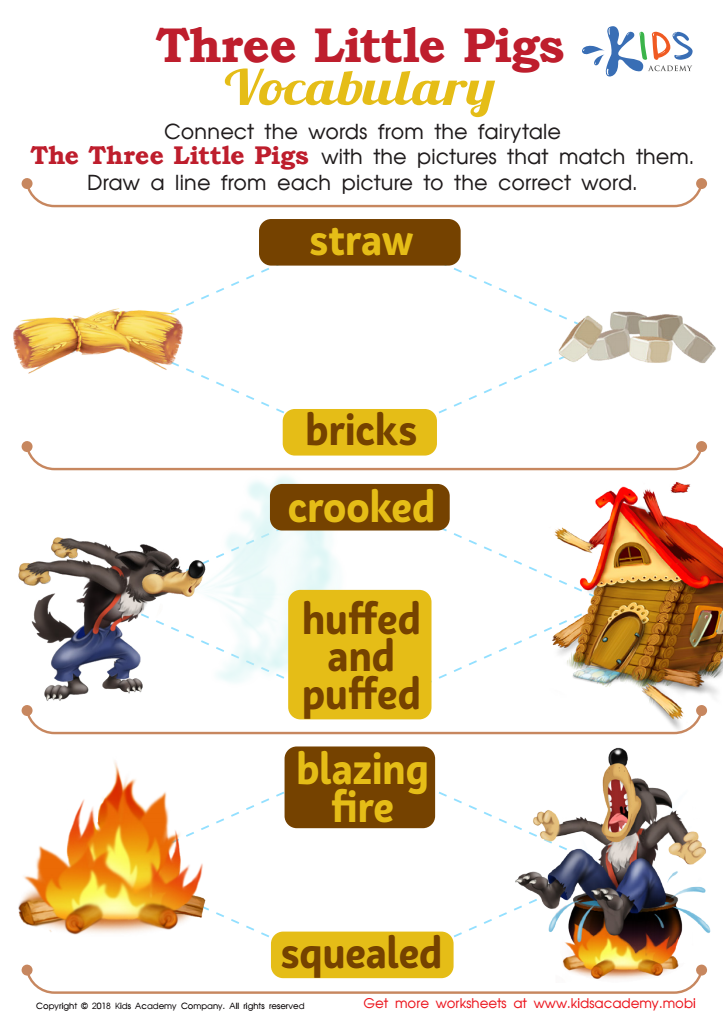

Three Little Pigs Vocabulary Worksheet
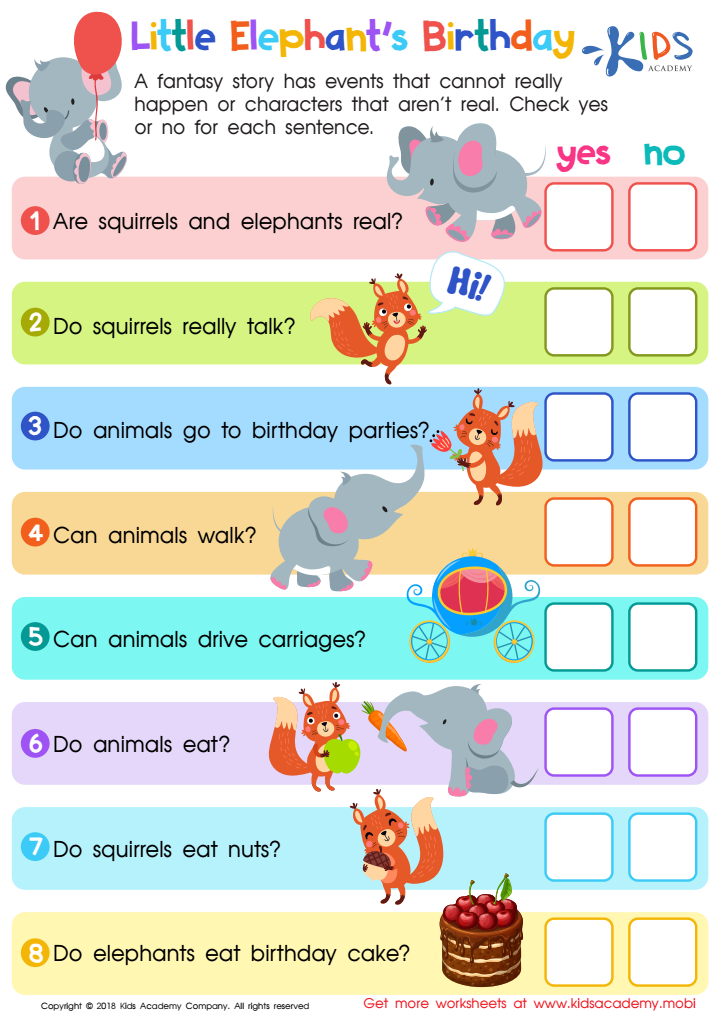

Little Elephant's Birthday Worksheet
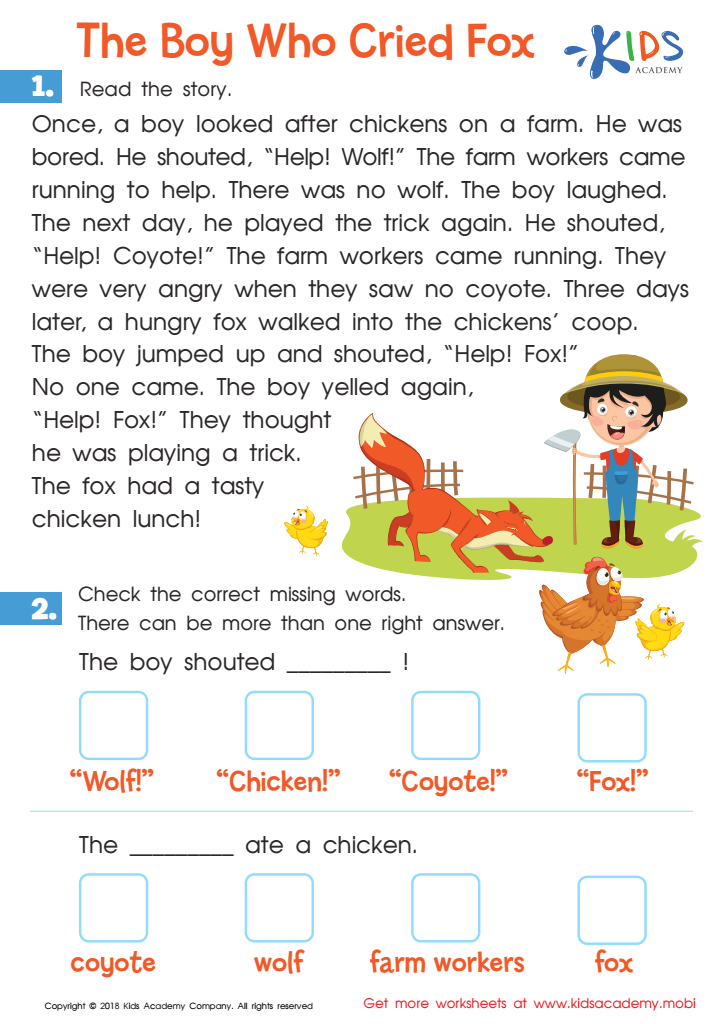

The Boy Who Cried Fox Worksheet
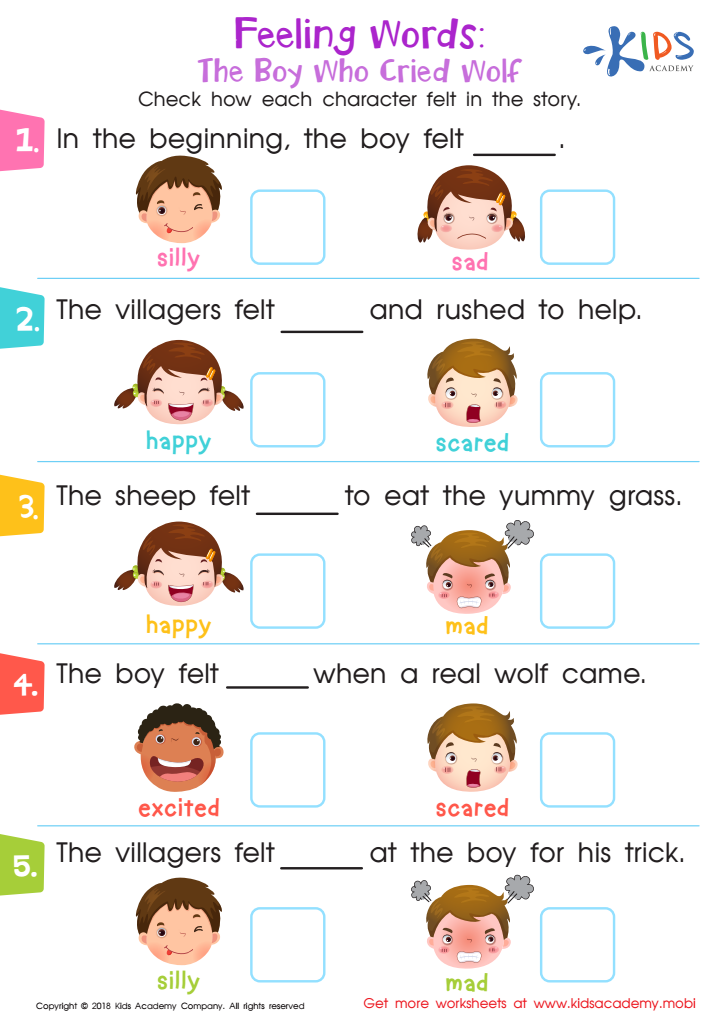

Feeling Words: The Boy Who Cried Wolf Worksheet
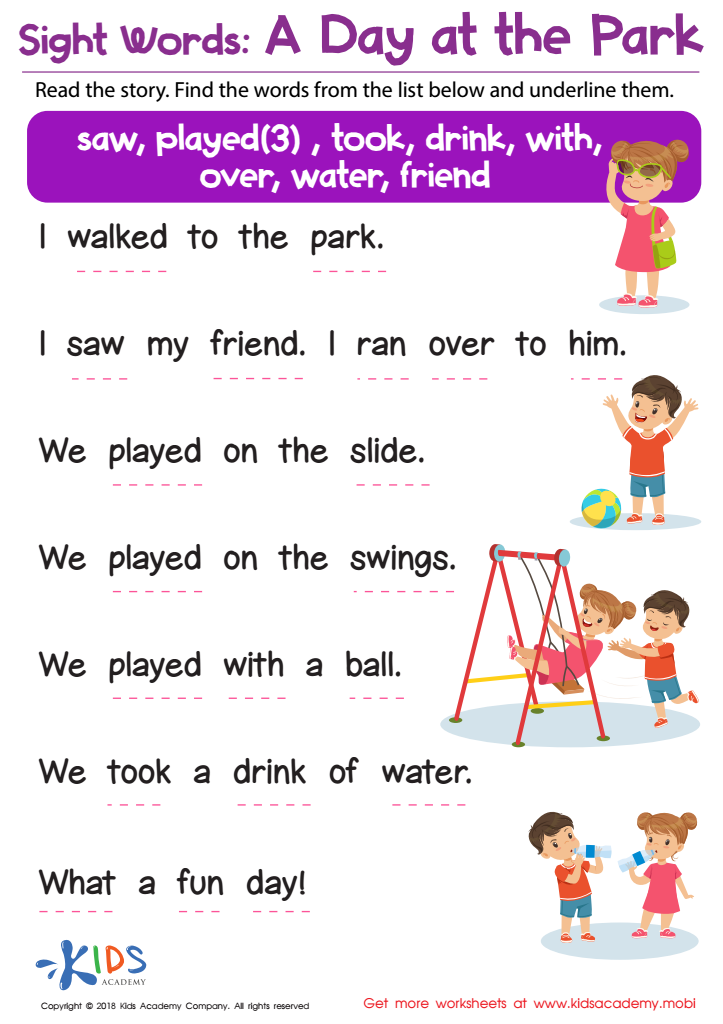

Sight Words: A Day at the Park Worksheet
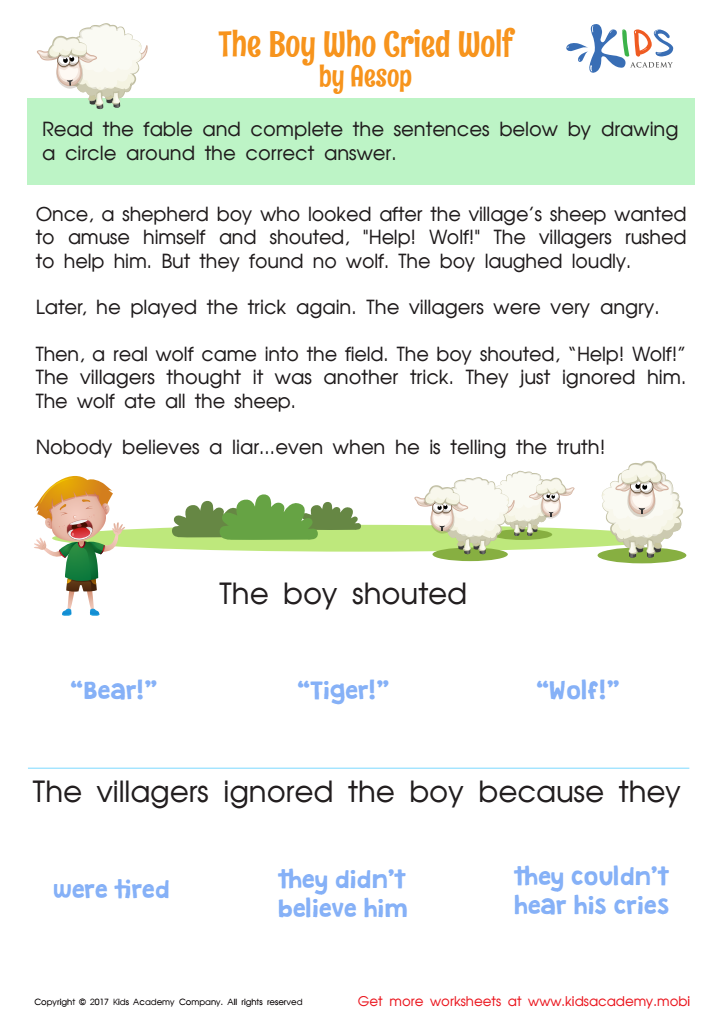

The Boy Who Cried Wolf Worksheet
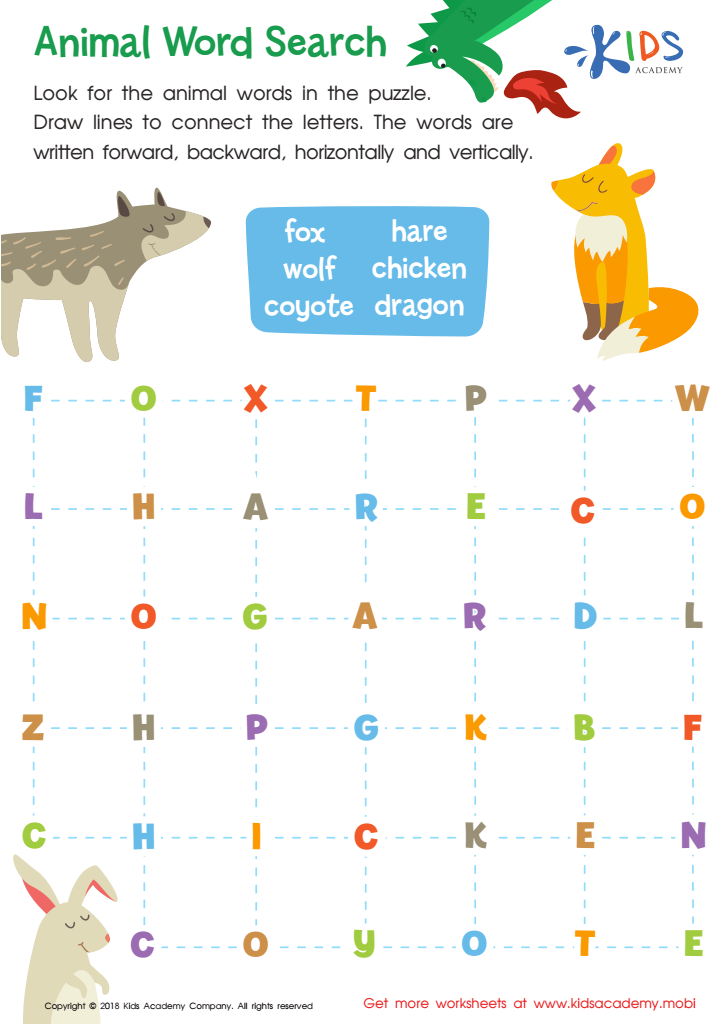

Animal Word Search Worksheet
Vocabulary building and the ability to read normally at ages 5-6 are crucial for a child's development, both academically and personally. During these early years, children are highly receptive to learning new languages, and a rich vocabulary provides the foundation necessary for reading comprehension, effective communication, and cognitive development.
When children are encouraged to read and build their vocabulary, they enhance their ability to understand and process information. This cognitive skill is not only vital for academic success across all subjects but also for problem-solving and critical thinking. As children decipher new words and phrases, they begin to grasp more complex ideas, making it easier for them to learn new concepts in the future.
Moreover, strong vocabulary and reading skills improve a child's confidence and willingness to engage in discussions. This self-assurance carries over into social situations, where children can express themselves more clearly and understand others better, fostering stronger interpersonal relationships.
Parents and teachers play a significant role in this developmental phase by introducing age-appropriate books, engaging in interactive reading sessions, and encouraging curiosity about words and language. By prioritizing vocabulary building and normal reading practices from an early age, they lay the groundwork for lifelong learning and optimum personal growth.

 Assign to My Students
Assign to My Students



